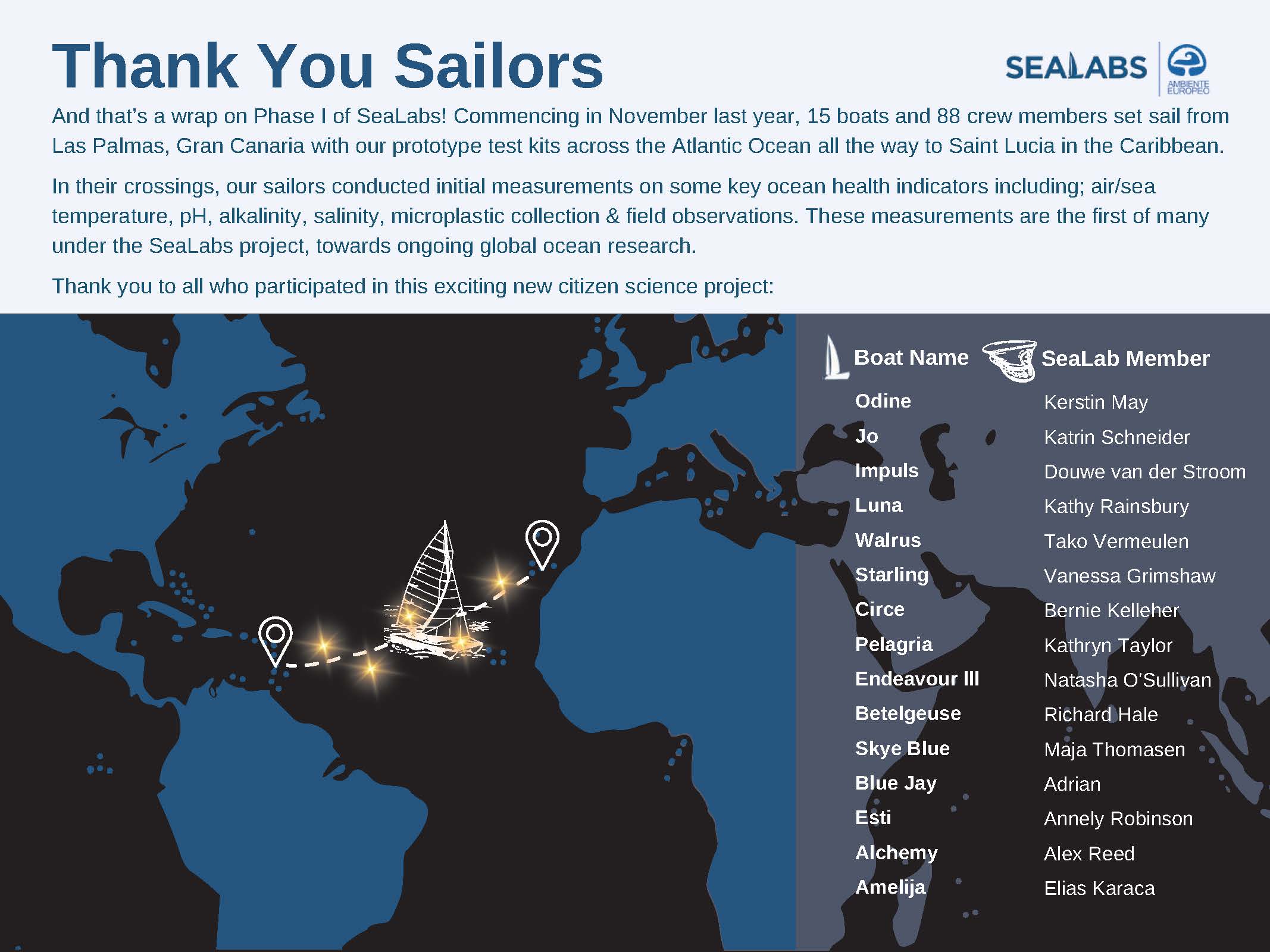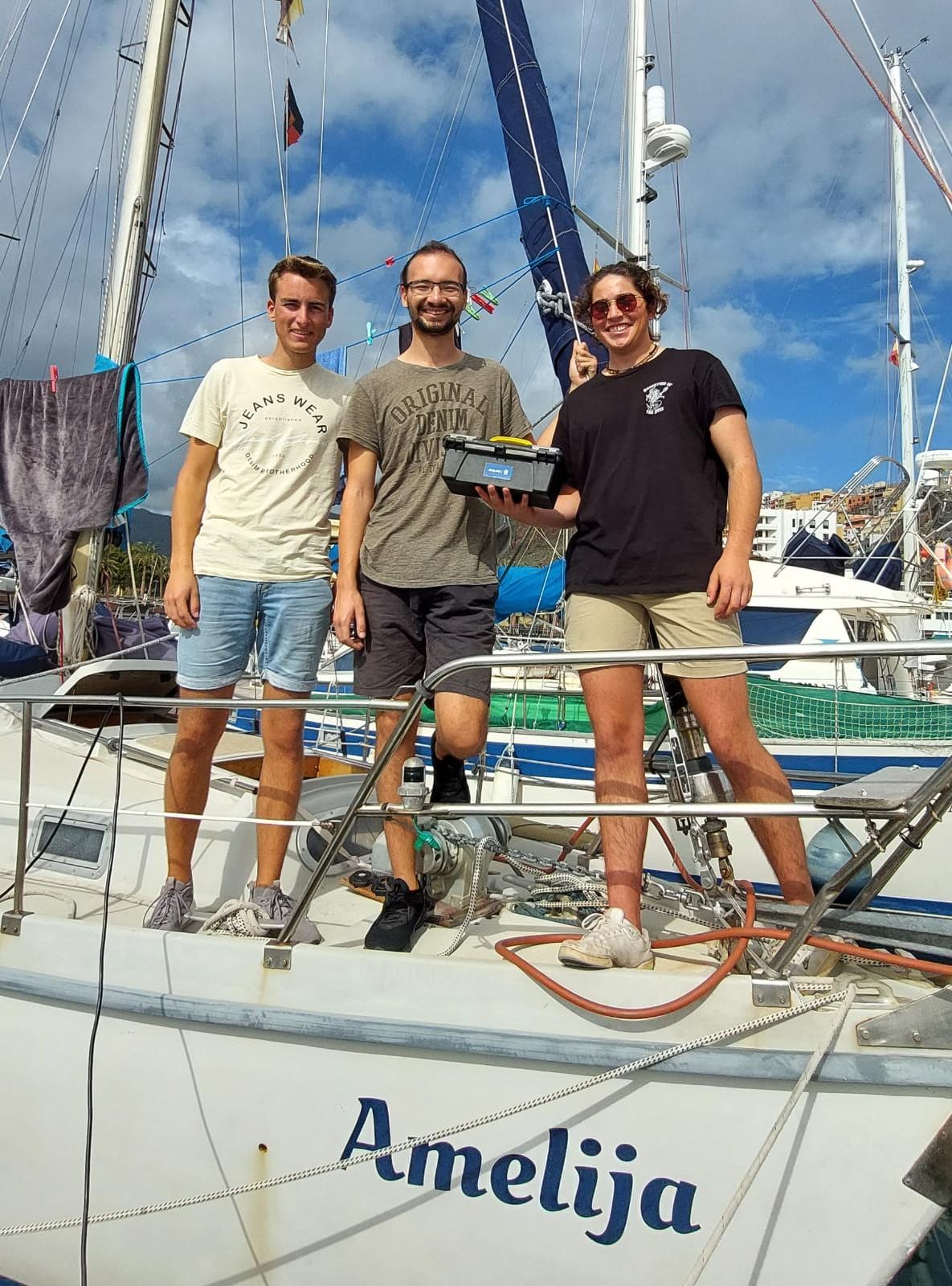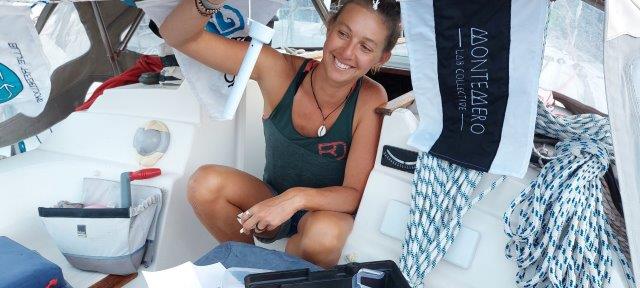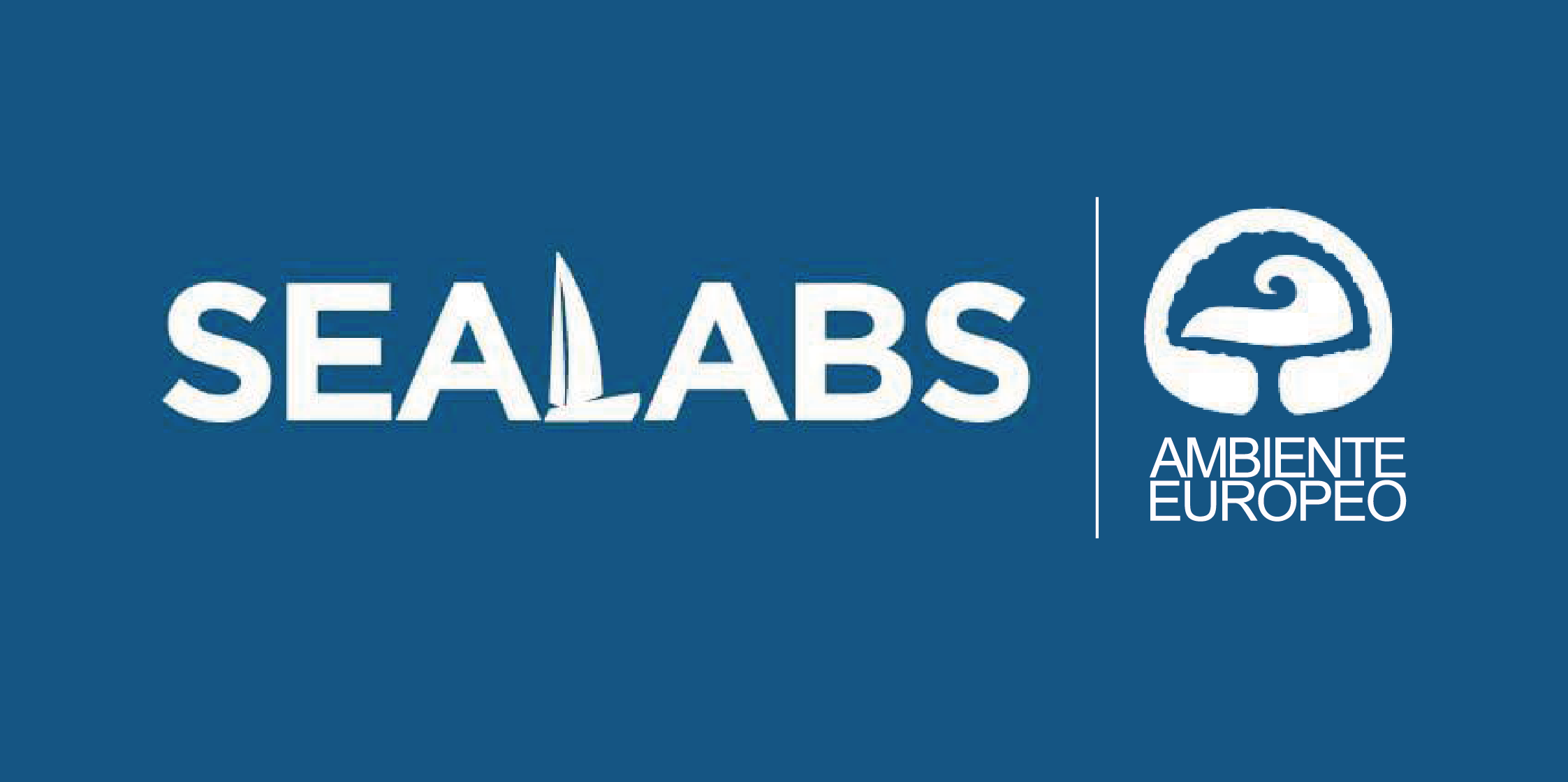The Spanish environmental group Ambiente Europeo equipped 15 sailboats with mobile test kits – SeaLabs - in November during ARC 2022 for crews to measure various marine parameters on the high seas. Using the simple, lightweight kits provided at the start in Las Palmas de Gran Canaria, samples were taken throughout the crossing, with the data provided used for diverse marine research projects to gain more insight into ocean’s acidity, absorption of CO2, and level of microplastic pollution. Participants included biologists, ocean researchers, medical doctors, students and sailing families who help in researching how ocean parameters change.

“Without the volunteers and the help of the regatta organization of the ARC, the pilot project would not have kicked off so smoothly,” says Canary Islands coordinator Luise Wagner.
 After more than three weeks at sea, the young skippers from Amelija were not only highly satisfied with the achievement of their first Atlantic crossing but helped tremendously with feedback on the first generation SeaLabs kit used by the ARC crews in 2022. The three young men from the German-flagged 12m Amel Euros 41 sailing yacht filtered Atlantic water, measured temperatures, and recorded pH values.
After more than three weeks at sea, the young skippers from Amelija were not only highly satisfied with the achievement of their first Atlantic crossing but helped tremendously with feedback on the first generation SeaLabs kit used by the ARC crews in 2022. The three young men from the German-flagged 12m Amel Euros 41 sailing yacht filtered Atlantic water, measured temperatures, and recorded pH values.
"When we had to hold our position under sail for taking the temperature at a depth of 10m, we needed some improvisations as diving was really hard underway," explains 19-year-old Elias Karaca. “It was very exciting though and we are so happy to have contributed to the project’s progress.”
SeaLab's data from season 2022 / 23
- Test boats covered more than 3000 nautical miles in 2.5 to 3 weeks.
- 30 samples were collected at different open ocean locations, in positions between 30°N and 45°W and 46°N and 60°W.
- 15 ARC teams with 88 sailors from 7 nations were involved.
- Among them: sailing marine biologists, physicists, meteorologists, chemists, climate change scientists.
- 12 microplastic samples were collected and are currently being analyzed.
- Measurements at 1m depth showed an average temperature of the Northern Atlantic Ocean between Africa and South America of about 26.7 Celsius - unusually hot for the time of year in the zone.
Hot autumn with high temperatures in the Atlantic
 Many sailors sent in their water filter samples by mail from islands in Santa Lucia, Martinique, or Barbados. “I am stunned by the great collaboration of these volunteer teams”, says Emily Pappa, biologist at Ambiente Europeo.
Many sailors sent in their water filter samples by mail from islands in Santa Lucia, Martinique, or Barbados. “I am stunned by the great collaboration of these volunteer teams”, says Emily Pappa, biologist at Ambiente Europeo.
At first sight, the findings show microplastics present in all the samples, even though the tests were done in the middle of the Atlantic. Currents are carrying microplastics everywhere.
Also striking for almost all test boats were the unusually large carpets of brown algae (Sargassum) on the high seas, a type of algae that usually only spreads in tropical zones and this time also appeared in increased numbers in northern zones.
Marine biologists suspect that the algae formed because of premature and higher warming of the Atlantic Ocean. The North Atlantic had warmed more in the fall of 2022 than in previous years, with up to 5 degrees Celsius at the surface and record highs measured.
These higher temperatures had also made for unusually far-out weather systems, at the edge of which sailors had to contend with high waves, rain and moody gusts in early December. Thus, for some boats, the crossing was also quite arduous and took a good week longer than usual.
What's next for SeaLabs?
 The SeaLabs pilot project is now entering the hot development phase and more sailing boats will be contacted for the testing.
The SeaLabs pilot project is now entering the hot development phase and more sailing boats will be contacted for the testing.
“For us, the priority in Phase 1 was finding out whether the project would be attractive for the sailing community,” says environmental engineer Pino Brenner of Ambiente Europeo.
The SeaLabs team is working with its technological partners to develop user-friendly sensors enabling sailors to collect data in a more accurate way and reduce error rates.
“After all, SeaLabs is a citizen science project that is not carried out by trained researchers, but by self-taught people.” says coordinator Luise Wagner. Ambiente Europeo looks forward to meeting with sailors again this upcoming crossing season at the ARC 2023.
If you would like to get involved, please sign up in this form: https://docs.google.com/forms/d/e/1FAIpQLSc0wTR1k6-YVKtKhjz9Y9AC9j_Hz1u5aqgWCni00ZL7ueP16w/viewform?pli=1